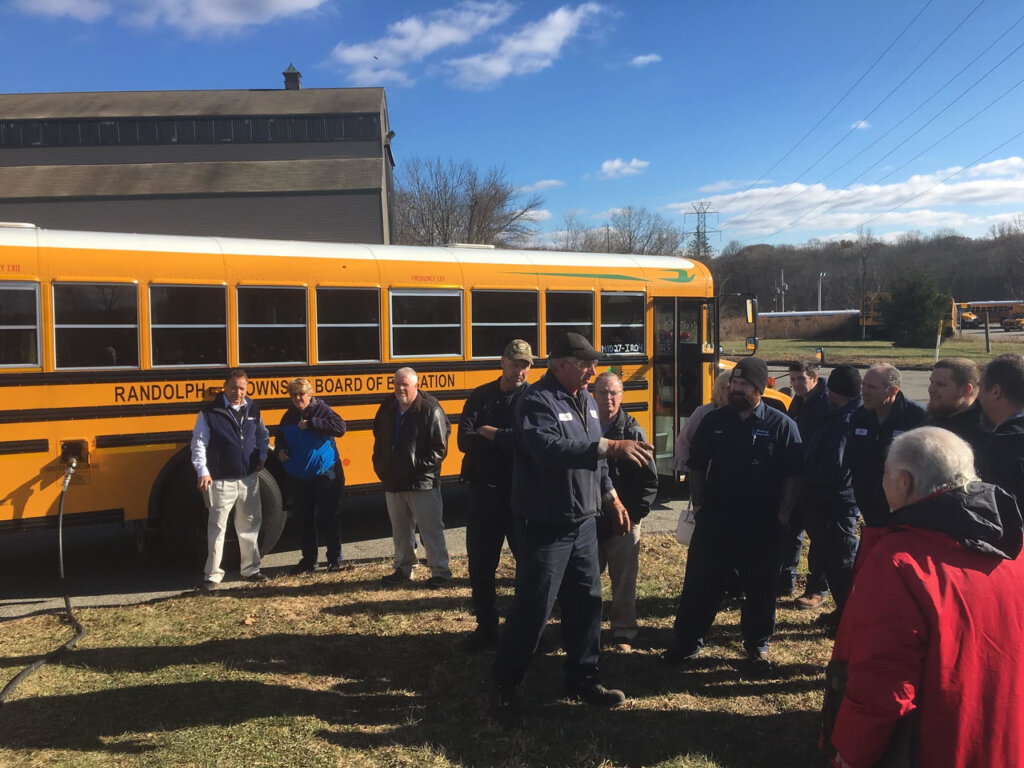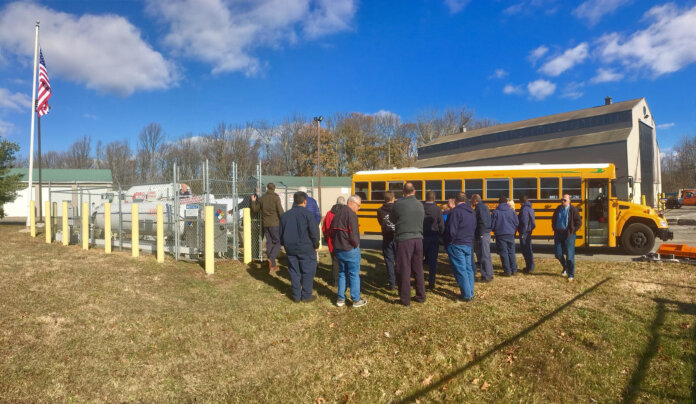Randolph Township School District in New Jersey serves about 4,300 students with a 36-bus fleet. In 2011, John Aymil, Randolph Township’s transportation director, started investigating alternative-fuel buses to address concerns related to new diesel emissions standards.
“Our mechanics had questions about the upcoming diesel emissions on diesel school buses,” said Aymil.
The district’s bus dealer, Hoover Bus Sales, recommended propane autogas.
The district became the first in New Jersey to purchase propane buses. Now, the district operates 100% of its route buses on propane, keeping two gasoline buses and one diesel bus as spares.

Aymil noted that it took the drivers a little time to get used to the propane buses.
“Our older diesel buses are transit-style, and the drivers had to adjust to driving the conventional-style school bus,” Aymil said. “But after the break-in period, there were no issues.”
The bus drivers appreciate the unexpected benefit of a quieter ride.
“The propane buses are much quieter – which is great because of the number of residential houses in our staging area,” Aymil said. “Drivers can hear the students onboard while still focusing on the road.”
Also of benefit is the lack of diesel odors in the shops. “The propane fuel does not smell bad in the garage like the other fuels,” Aymil said.
With propane autogas, no exhaust after-treatment or diesel emissions fluids are required to meet today’s strict emissions regulations. Plus, propane uses less engine oil.
“The propane bus maintenance parts cost less, plus oil changes are significantly less expensive,” Aymil said.
The techs also noticed that the propane buses do not need heat in the engine block during the winter months. “The warmup time is almost non-existent on the propane,” Aymil said.
The technicians received training from Hoover Bus Sales, along with bus manufacturer Blue Bird and propane fuel system manufacturer ROUSH CleanTech. Aymil also regularly trains the drivers on propane fueling safety.
On average, propane autogas costs about 50% less than diesel. Maintenance service and costs are reduced due to propane’s clean operation. The savings help Randolph Township operate leaner.
Randolph Township did not take advantage of grant funding to purchase the buses, although state and federal funding is available. For example, the Environmental Protection Agency’s Clean School Bus Program is providing $5 billion between 2022 and 2027 to replace existing school buses with low- and zero-emission school buses, including propane.

Hundreds of school districts across the nation have reported savings of up to $3,700 per bus per year due to lower fuel and maintenance costs compared with diesel.
School buses that run on propane also emit fewer greenhouse gases, smog-producing hydrocarbons, nitrogen oxides and virtually eliminate particulate emissions compared with conventional fuels. According to a West Virginia University study released in 2019, propane autogas school buses reduce nitrogen oxides by at least 95%.
“New Jersey does not check emissions on propane buses because they run so clean,” Aymil said.
The district worked with propane fuel supplier Amerigas to install fueling infrastructure and supply fuel. The district started with a 1,000-gallon tank, adding a second one in 2017 to allow for two buses to fuel at once. The second station cost the district about $38,000. Building a propane station costs less than any other fuel source, including diesel, gasoline, CNG and electric.
Aymil suggests districts start with a propane fueling site that can handle a future propane bus fleet.
“It will make it easier to grow your propane bus fleet without the inconvenience of longer fueling times,” he said. Propane buses can travel about 400 miles between fueling.
The district’s 33 Blue Bird Vision Propane, Type C school buses consume approximately 81,000 gallons of propane per year.
Todd Mouw is executive vice president of sales and marketing for alternative fuel vehicle technology specialist ROUSH CleanTech.







